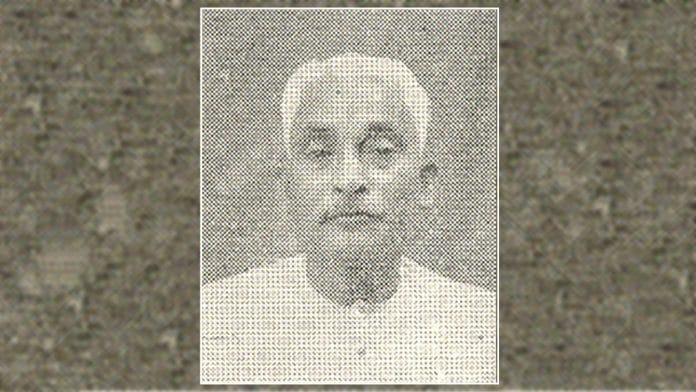Barman advocated that Scheduled Castes should fight for their rights, and if their voices are not heard, they should ‘revolt’ until they get justice.
New Delhi: Upendranath Barman, a member of the Constituent Assembly, came from the Rajbanshi community which had once ruled the Cooch Behar region of present-day West Bengal.
The Rajbanshis, who belong to the Tibeto-Burman ethnic group, are scattered over parts of Assam and West Bengal, as well as Bangladesh and Nepal. While the Rajbanshis in West Bengal enjoy the Scheduled Caste status, those living in Assam are considered among Other Backward Classes (OBC).
In the Constituent Assembly, Barman had said the Dalits and other SC communities should put forth their legitimate demands before the government.
Early life
Barman was born on 1 December 1899 in Cooch Behar. He completed graduation from Victoria College in Cooch Behar and earned his LLB degree from University Law College in Calcutta (now Kolkata).
Also read: Deshbandhu Gupta, a freedom fighter who believed in free press
Foray into politics
Barman ventured into politics after practising law for a few years in Jalpaiguri in North Bengal. He was a part of the Indian National Congress and was elected to the Bengal Legislative Assembly from 1937 to 1945. He also served as a minister in the state between 1941 and 1943. In the first general elections in 1952, he contested from the North Bengal Lok Sabha seat and won. He again fought the Lok Sabha polls from Cooch Behar constituency in 1957 and won. He lost the 1962 election.
Constituent Assembly debates
In the Constituent Assembly, Barman was extremely vocal about the rights of the backward castes. Although steps to improve their conditions were taken by the then government, Barman felt they were not enough.
Reservation for Scheduled Castes, then known as ‘Depressed Class’, was incorporated in the Government of India Act, 1935 which was passed by the British Parliament.
Barman believed that despite the inclusion, the condition of the backward castes had not improved and that they were still suffering. Only a privileged few, who got the opportunity to get education, were in better condition.
Barman suggested that the Scheduled Castes should fight for their rights, and if their voices fell on deaf ears, they should ‘revolt’ until they got justice.
Also read: Balkrishna Sharma: A freedom fighter & poet admired by Atal Bihari Vajpayee
Personal life
Barman got married in 1926 and had two sons and four daughters. Apart from politics, Barman was drawn to research and writing. He authored two books, History of Rajbanshi Community and History of Rajbanshi Literature. However, not much information is available regarding the later years of his life, except that he died in 1988.






